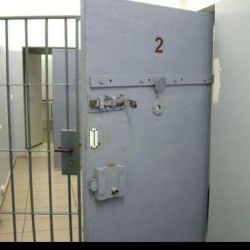The report of the Supreme Audit Office examined the extent to which the rights of prisoners to health care are protected. The SAO’s auditors investigated, among other things, access to individual health services, the technical condition of facilities, the availability of medical devices and the inmates’ ability to exercise the right to complain against the medical services.
The report makes a negative assessment of the technical facilities and equipment of prison health care units. It is more favourable, despite the documented inadequacies, to the efforts of the Prison Service to ensure adequate medical care to detainees. According to the authors of the report prisoners have 24/7 access to specialist medical care.
Some findings of the SAO’s report correspond to those of the “Health Care in Polish Prisons” programme. Similarly to the SAO’s report, the programme’s conclusions pointed to the poor technical conditions and inadequate equipment of the prison medical wards. However, unlike the report, the findings of the programme stressed the connection between insufficient medical services and the problem of overpopulation in prison facilities.
“After the judgement in the case G v. Poland, it is yet another signal of the urgent need to modernise health care for prisoners. This is a meaningful step towards a debate on its condition”, says Maria Ejchart, a HFHR’s lawer.





